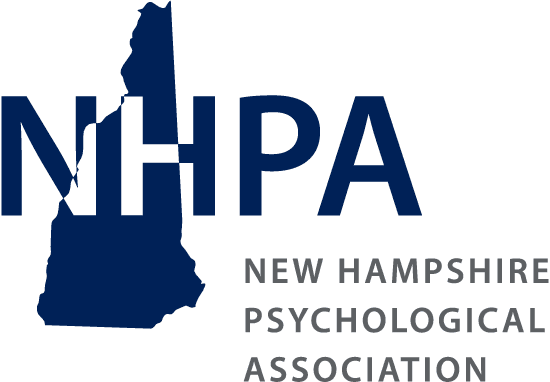Thursday, May 7, 2020
Suicide Assessment and Intervention Training for Mental Health Professionals
With Larry Berkowitz, Ed.D.
6 CEs
Description
This full-day training is designed to increase knowledge and improve the skills and confidence of clinicians and others who find themselves identifying high-risk youth and adults, and planning for their care. Participants will learn the scope of the problem, review current information on suicide risk factors, and examine personal reactions to dealing with suicidal behaviors. Best practices in risk assessment will be presented and attendees will learn techniques for eliciting suicidal ideation. Issues relative to liability management and planning for intervention will be presented. The training, which was approved in 2015 by the SPRC Best Practices Registry for Suicide Prevention, is based on current best practices and reflects the training objectives in the 2012 National Strategy for Suicide Prevention. Research on the effectiveness of this training demonstrates significant gains in knowledge and confidence. This is designed to provide six (6) hours of continuing education
Learning Objectives
This workshop is designed to help participants:
- Describe the scope of the problem of suicide.
- Provide a clinically accurate definition of suicide.
- Manage personal reactions to suicidal clients.
- Identify suicide warning signs and risk and protective factors.
- Identify ways to elicit suicidal ideation and history of behaviors.
- Identify strategies and tools to formulate/assess risk.
- Describe ambivalence around suicide and the idea of suicide as a coping strategy.
- Describe the value of appropriate postvention and grief support services for individuals and communities affected by suicide loss
Presenter Bio:
Larry Berkowitz, MPA, Ed.D., is the Director and co-founder of Riverside Trauma Center in Needham, MA, and holds an appointment as a Teaching Associate in Psychology, Part Time, at Harvard Medical Schoolhe directed Riverside Outpatient Center at Wakefield, MA –a mental health and substance abuse treatment center. He is a member of the Executive Committee of the Massachusetts Coalition for Suicide Prevention, and was a member of the Survivors of Suicide Loss Task Force of the National Action Alliance for Suicide Prevention. A licensed Psychologist in Massachusetts, he has specialties in working with children, adolescents and families. He trains extensively on suicide prevention, assessment and management of suicide, and postvention activities to contain suicide contagion in schools and communities. Dr. Berkowitz has consulted with numerous schools and communities in Massachusetts on trauma responses and clinical issues for the past 25 years, and leads a state-wide behavioral health trauma response network. He holds a Masters degree in Public Administration from Western New England College and a Doctorate of Education in Counseling and Consulting Psychology from Harvard University.
Friday, May 8, 2020
The Unified Protocol for Transdiagnostic Treatment of Emotional Disorders
With Todd Farchione, Ph.D.
6 CEs
Description
Recent conceptualizations of anxiety, depressive, and related “emotional” disorders emphasize their similarities rather than their differences. In response, there has been a movement in recent years away from traditional disorder-specific manuals toward treatment approaches that focus on addressing core psychological processes that appear to cut across these disorders rather than surface-level, DSM diagnostic symptoms. These “transdiagnostic” evidence-based treatments may prove to be more cost efficient and have the potential to increase availability of evidence-based treatments to meet a significant public health need. The Unified Protocol for Transdiagnostic Treatment of Emotional Disorders (Barlow et al., 2018; UP), developed by Dr. David Barlow and colleagues, is the most widely used transdiagnostic treatment with empirical support for its use. The UP is an emotion-focused cognitive-behavioral treatment (CBT) that targets core deficits occurring across the neurotic spectrum (e.g., anxiety, depressive, and related disorders). This introductory workshop will first briefly discuss the rationale for a transdiagnostic approach to treatment and review evidence supporting the UP. This will be followed by a description and demonstration of how to apply core UP treatment modules, along with the similarities and differences between the UP and traditional CBT. Audio and videotaped illustrations of core treatment interventions (e.g., mindful awareness, emotion exposures) will be presented and attendees will be invited to participate in exercises as part of these demonstrations.
Learning Objectives
This workshop is designed to help participants:
- Describe basic rationale for utilizing transdiagnostic CBT in the treatment of emotional disorders.
- Identify core temperamental characteristics and deficits in emotion regulation underlying all anxiety, depressive, and related disorders and describe how these processes are assessed and targeted within the UP’s transdiagnostic framework.
- Develop basic transdiagnostic case conceptualizations based on shared underlying mechanisms.
- Observe and describe how to apply the UP’s five core emotion-focused treatment strategies - increasing mindful emotion awareness, fostering cognitive flexibility, identifying and reducing patterns of emotion avoidance, increasing awareness and tolerance of emotion-related physical sensations, and interoceptive and situational emotion-focused exposures - to patients presenting with comorbid emotional disorders.
- Create effective and cohesive emotion exposures for patients with anxiety, depression and complex comorbidities.
Presenter Bio
Dr. Farchione is a Research Associate Professor of Psychology at Boston University. He currently directs the Intensive Treatment Program at the Center for Anxiety and Related Disorders (CARD). While at CARD, he has achieved the prestigious title of Master Clinician, which is awarded only to those with years of clinical experience and superior supervisory skills. His research focuses on understanding emotion regulation processes, identifying mechanisms of change in treatment, and on developing new preventative measures and improved treatments for emotional disorders. Dr. Farchione is also the Director of the Unified Protocol Institute. He teaches, guest lectures, and conducts professional training workshops on the nature and treatment of emotional disorders and has been recognized for his dedication to improving training of clinicians and dissemination of empirically supported treatment.
-------------------------------------------------------------------------------------------------------------
~Thank you to sponsors~


Payment options ~ Credit Card or Check
Choose "invoice me" if you would like to mail in payment
-------------------------------------------------------------------------------------------------------------
Cancellation Policy:
Refunds, minus a 35% cancellation fee, will be issued for all cancellations received two weeks prior to the start of the course (on or before April 23, 2020). No refunds or vouchers will be made thereafter. No-shows are not refunded.
Inclement weather policy:
In the event that NHPA has to postpone or reschedule the training conference, a voucher equivalent to the full price amount of what was paid for the conference will be issued. If NHPA has to cancel the event with no postponement or reschedule date, a full refund will be given. Please be sure that NHPA has your up-to-date contact information (email/text/phone). Any weather cancellations or postponements will be made no later than three hours prior to an event. Should you have questions or concerns about whether an event may be changed due to weather, please check the NHPA website, www.nhpsychology.org or call the NHPA office at (603) 415-0451.
Attendance policy:
Full attendance is required to obtain CEs per NHPA policy. No partial credit will be given. Those who attend the workshop and complete the evaluation form will receive six continuing education credits. Please note that APA CE rules require that we only give credit to those who attend the entire workshop. Those arriving more than 15 minutes after the scheduled start time or leaving before the workshop is completed will not receive CE credits and will not be eligible for the 15% premium discount described below.




